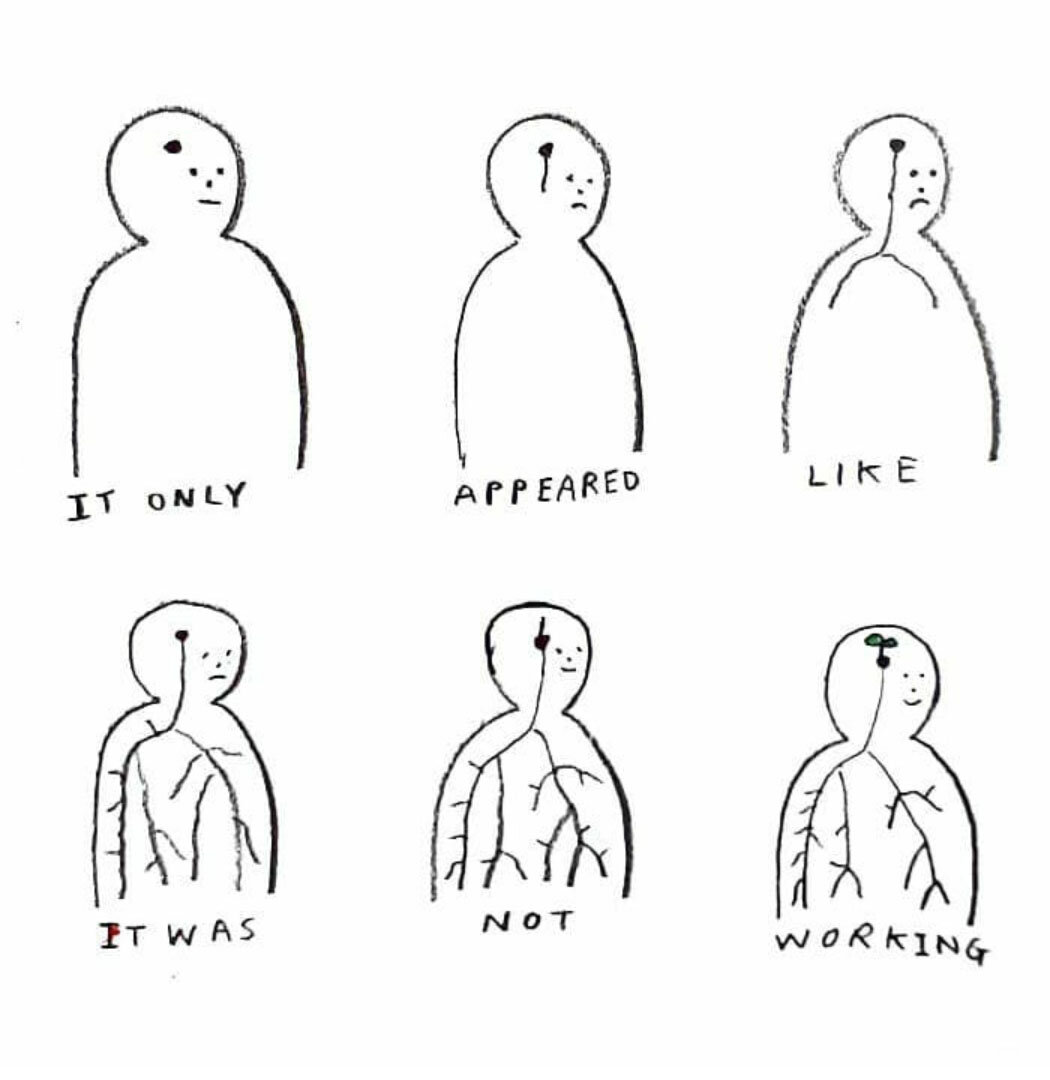How to Pick the Right Mental Health Professional For You.
Written by Jen - October 21, 2020
What a monumental moment. You have decided that you need help. It’s a difficult and frankly bold decision. To stand up and say that whatever you have been coping with, grief, anxiety, depression, hopelessness, dissatisfaction, is too much to handle on your own so you have decided to reach out to someone who can help. I have been there and most of the people in my life have at one point or another realized that life can be too much to handle and you need someone who isn’t your best friend, mom, or partner to provide some support. I find that typically when this moment is reached, the last thing that anyone wants to do is research the right type of mental health professional to see and worse so, cycle through the wrong helping professional until you find the right one. Even more tragically, I find that this is the moment that a lot of people give up. They say that there is no point in reaching out, it’s just too hard to find the help you need. Although the decision to and process of attending regular psychotherapy sessions for a short or extended period of time is a more expansive discussion, lets really start with the simplest question: Who do I see?
For anyone who doesn’t work in the mental health field (and let’s be honest, for some who do) the different titles, experiences, and sets of letters listed after a professionals name give little indication of who is the “right” person to see for any given issue. Let’s talk about who to see and what for. Please bear with me, this list is born out of California and is based on my professional experience and opinion. Everyone may have different experiences with the types of professionals and each experience is worth noting. This is an overview for anyone who would like to seek mental health support and is looking for a place to start.
Artwork by @constantbageltherapy on Instagram
Licenses:
Mental health professionals largely fall into one of the licenses that are listed below. This list covers some licenses only in California, so if you are in another state, you may have to look up the equivalent to the indicated licenses below. Licensing for a mental health professional ensures oversight for the profession typically requiring some level of education, practicum, testing, and CEUs. It also allows you to look up a professional you are seeing for any disciplinary action by the oversight board. I would advise you to see someone with licensing to provide you with a level of protection. As a licensed therapist I must abide by legal and ethical codes that ensure my clients are as safe as possible. Unlicensed individuals are held to no such standard. The licenses below are listed in their full name and in abbreviated form. They may be listed after a professional’s name in either fashion.
Artwork by our co-founder, Sarah
Licensed Marriage and Family Therapist (LMFT): This is a license particular to California. These are therapists with a master’s level education typically in some sort of counseling that is approved by the California Board of Behavioral Sciences. Anyone with this license is permitted to provide individual, family, or couples psychotherapy. I find a lot of people confused by this license because it eludes to only doing family or couples therapy. It is NOT just for those purposes. These are therapists who can provide individual therapy to anyone in their scope (more on that later) but may also provide couples and family therapy. They are trained specifically in assessment, diagnosis, and therapeutic treatment of mental disorders. See this person if you are looking for a talk therapist.
Associate Marriage and Family Therapist (AMFT): This individual is not fully licensed but is licensed prepared. They will become LMFTs when licensed. They have completed their master’s degree and are approved by the board to begin practicing under the supervision of a licensed therapist such as LMFT. They are typically less expensive to see but do not have as much experience.
Licensed Professional Clinical Counselor (LPCC): This license is sometimes seen in California but is also accepted in various other states. It is akin to an LMFT in practice, education, and scope. Its licensed prepared clinician is listed as an Associate Professional Clinical Counselor (APCC).
Licensed Clinical Social Worker (LCSW): LCSWs are also a master’s level clinician but are required to have a masters in Social Work or an MSW. Anyone with an MSW is not necessarily licensed. If you see this after someone’s name it only indicates the education, not the license. These clinicians are also by scope able to provide individual, family, and couples counseling. They historically have worked in agency settings such as hospitals and community clinics because of their focus on social work. You may also see this person if you need an outpatient therapist.
Associate Social Worker (ASW): This is the same as the AMFT in terms of this person not being fully licensed but licensed prepared. As with the AMFT this person has completed their education, is registered with the board, and approved to begin practicing under the supervision of licensed therapist such as an LCSW. Again they are less expensive to see but do not have the same experience as fully licensed therapists.
Artwork by @worry_lines on Instagram
Psychologist (PhD or PsyD): These practitioners have their doctorate degree. It can be confusing because they are technically doctors but are doctors of philosophy (PhD) or doctors of psychology (PsyD). They do not have a medical degree so are not MDs. In California they cannot prescribe medications as with much of the United States. These individuals sought out further education and can have a more intensive research background. They are sometimes seen practicing in other areas such as school psychologists that can perform psychological testing. They are able and licensed to provide individual, family, and couples therapy as with the other licenses listed above.
Psychiatrist (MD or DO): A psychiatrist went through a standard medical training with the eventual specialization in psychiatry. They are technically Medical Doctors with either an MD (allopathic medicine) or DO (osteopathic medicine) after their name. They are trained in both individual therapy and medication management. Many people I know see their general practitioner or family doctor for managing symptoms such as anxiety and depression but GPs do not have the training that a psychiatrist received. Some psychiatrists will do individual therapy but many only do medication management. Your individual therapist may even recommend an evaluation with a psychiatrist as an adjunct to your therapy sessions. See this person if you would like an evaluation for medication management.
Psychotherapist: This is a general term for anyone who provides psychotherapy. Any of the individuals above could be categorized as a psychotherapist. This is not a license. Just a general term.
Life Coach: A Life Coach is not the same thing as a therapist. They typically assist their clients identify a goal and work toward that goal by overcoming barriers in their client’s lives. They can be tremendously helpful but will not go to into the depth of insight that is achieved through work with a psychotherapist. They do not require or typically have any sort of licensure or certification. It is an incredible service but should not be confused with true psychotherapy because they are not providing treatment. They are more aptly described as guides.
Scope/Specializations
In general, all of the licensed individuals above can provide therapy but there may be some limitations due to their scope. Scope of practice can depend based on education, training, and experience. This is where specializations come in. Many therapists or practitioners decide to continue their education and become specialized in areas such as trauma, child/adolescent, end of life issues, eating disorder, play therapy, etc. If you have a particular issue you are hoping to work on, finding someone with a specialization can be beneficial but in general not necessary. For circumstances such as substance use, eating disorder, or other special issues finding a therapist with a specialization may be necessary but your therapist should be able to guide you if that is needed. If you area already seeing someone, ask their thoughts on the issue. If you are having a hard time finding someone with a particular specialization, don’t hesitate to see someone without it. Part of the process will be them assessing for this and supporting you with finding the right help if needed.
Artwork by @constantbageltherapy on Instagram
Who do I see?
With all of that, how do you know exactly who to see? Here are the basics:
First, find someone you can afford. Therapy should be sustainable at least for the time being. You don’t want to start something that causes more stress to your life. If you are reaching out for help, you are probably already dealing with enough. Look through your insurance if you have it for covered therapists. If your insurance doesn’t provide coverage for this service search for low cost, sliding scale, or community therapy clinics.
Second, just find someone and schedule an appointment. Once you find a name, see if they have some availability and just get yourself in face to face. The best way to tell if a therapist is going to work for you is to show up. No number of Yelp reviews will tell you if you will have success with this therapist. I will say generally licenses don’t make a huge difference. If you are looking for talk therapy, as long is someone is licensed it’s worth a shot. Don’t get stuck if you want to see an LMFT but there are only LCSWs in your area or if your insurance only has PhDs in network. Give it a try.
Thirdly, it’s about the relationship. Therapy, especially individual therapy, is largely about the working relationship you develop with your practitioner. Therapy will not always be easy, but it should at the very least feel safe and productive. If you begin attending sessions and get any red flags about the practitioner, don’t be afraid to have that discussion with them and move on. It is totally natural.
Lastly, please please please don’t give up. I am heartbroken when people give up their pursuit of seeking out help because of their struggle with the process. Generally the need for help doesn’t disappear overnight and sometimes it does take some time to find someone you connect with. Keep trying and I promise you will find someone who can support you through this chapter in your life. Do it for yourself. You of all people are worth it.





